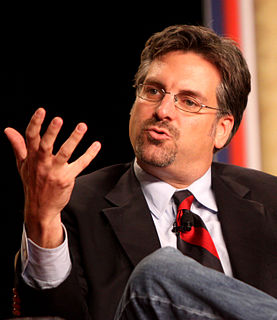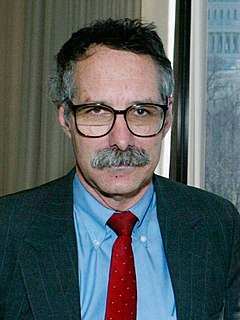A Quote by Janet Yellen
In the five years since the end of the Great Recession, the economy has made considerable progress in recovering from the largest and most sustained loss of employment in the United States since the Great Depression.
Related Quotes
The United States says "We're complying. We're following the disarmament obligation. Look at the quantitative reductions that are taking place." But, since '96, there really hasn't been progress on specific commitments that have been made. Perhaps most disturbing is this: that the United States and France in particular, since 1996, have expanded the range of circumstances under which they might use - they say they might use - nuclear weapons.
I know many of you are hurting and angry about the economy, and I don't blame you. It's the worst economy since the Great Depression. When consumers can't buy and businesses won't expand for lack of customers, the government has to be the purchaser and employer of last resort. We learned that in the Great Depression, but Republicans obviously didn't - and they've blocked every jobs program I've offered.
The cry of "Make America Great Again" reflects accurately that, after the fall of the Soviet Union, the sole superpower status of the United States is coming to an end. For the first time since the second World War, we are not the sole dominant economy in the world. In large part this is because of the success of policies followed by the United States to create an environment, a peaceful period in history in which economies could grow and countries could benefit.
Broadly speaking, Keynesianism means that the government has a specific responsibility for the behavior of the economy, that it doesn't work on its own autonomous course, but the government, when there's a recession, compensates by employment, by expansion of purchasing power, and in boom times corrects by being a restraining force. But it controls the great flow of demand into the economy, what since Keynesian times has been the flow of aggregate demand. That was the basic idea of Keynes so far as one can put it in a couple of sentences.
There's no easy way to say this, so I'??ll just say it: We're no longer No. 1. Today, we're No. 2. Yes, it's official. The Chinese economy just overtook the United States economy to become the largest in the world. For the first time since Ulysses S. Grant was president, America is not the leading economic power on the planet.
I promised to bring change to Washington. The underlying reason for the economic mess we're in has been building for years. It's a fundamental imbalance in which the top 1 percent now gets almost a quarter of all national income. We haven't seen income and wealth this concentrated since the late nineteen twenties, and we all know what happened then - the Great Depression. We'll never really get out of the gravitational pull of the Great Recession until we fix this basic problem.
One intriguing subplot of the economic crisis is the failure of most economists to predict it. Here we have the most spectacular economic and financial crisis in decades - possibly since the Great Depression - and the one group that spends most of its waking hours analyzing the economy basically missed it.
Since the date, 1776, is placed on the bottom course of the pyramid [on the Great Seal], and since the number 13 has been so important in the history of the United States and in the symbols of the seal, it is not unreasonable to suppose that the thirteen courses of the pyramid may represent thirteen time-periods of thirteen years each.


































